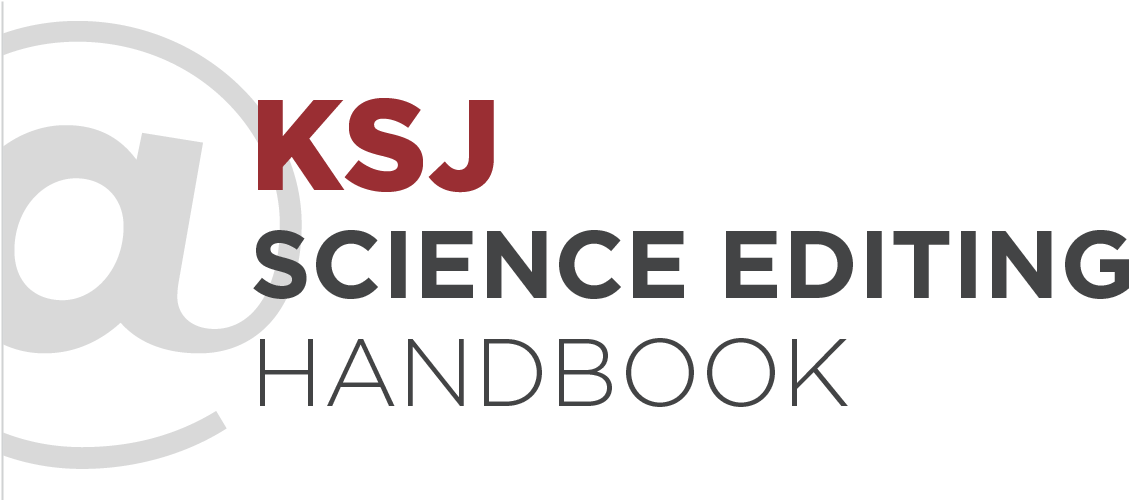Building the Argument
By Ashley Smart / 4 minute read
Good opinion, like good journalism of any kind, is grounded in solid research and reporting. To have any hope of persuading readers to see an issue in a new light, you should tell them something they didn’t know. But you also have to do more than that.
There’s an emerging consensus among science-communication experts that, to win over readers who are skeptical about science, you can’t just to overwhelm them with facts and evidence; you must also appeal to their values and emotions.
In her contribution to “A Tactical Guide to Science Journalism,” the former Boston Globe editorial-page editor Bina Venkataraman describes a multipronged approach, employing Aristotle’s concepts of ethos, logos, and pathos:
Ethos is about establishing the credibility of the speaker or writer who is trying to persuade…
Logos involves using the tools of logic and evidence. That means using data or scientific studies; citing or quoting experts or authorities on a matter of dispute; drawing on analogies, precedents, or supporting examples; and making plain the logical reasoning that led to your conclusions.
Pathos is persuasion by emotional appeal. Eliciting an emotional response from your readers can lead them to share your point of view. It can be done by imparting stories of people in struggle or triumph and by using powerful and rousing language.
In a 2021 Undark essay called “The Silent Epidemic of Premature Death in Black Men,” Nina Harawa, a professor of medicine and epidemiology at the University of California at Los Angeles, combined those concepts to impressive effect. Harawa is an expert on the topic — fluent in the statistics on early mortality in Black men, and familiar with the scholarly work on the causes of that disparity. She could cite with ease the socioeconomic factors that had shortened the average life expectancy of Black men in the U.S. to five years less than their white counterparts.
But what made those facts difficult for readers to brush off was the way that Harawa, herself a Black woman, connected them to her personal experience. Pondering the disparate toll that Covid-19 had taken on Black men, she wrote:
Last year, before the pandemic, I attended funerals for three Black men in a single month — men who were friends and colleagues, fathers and sons. Both my father and the man who was a second father to me died before the age of 60. In the space of just 12 years, families at my children’s former preschool have had to bury four fathers — all Black, all hard-working husbands, and all contributing members of their communities.…
As an epidemiologist, I know that these are more than just a string of unrelated, individual tragedies. Rather, they are part of a pattern of premature deaths among Black men in the U.S., where even before the pandemic the average life expectancy of Black men was five years shorter than that of White men and roughly a decade shorter than the life expectancies of women overall.
Harawa goes on to deliver plenty of logos, citing an array of scholarly research and reputable studies from institutions like the federal Centers for Disease Control and Prevention. But her pathos, her appeal to readers’ emotions and sense of humanity, delivers the gut punch that makes her essay impossible to forget.
Beware the contrarian
It is not easy to find and stake out genuinely new ground on a hot-button issue, especially in science. And it can be boring to make an argument that has already been made time and time again. As a result, there can be a temptation, among opinion writers, to be contrarian for contrarianism’s sake.
However, be wary of that tendency, especially in science writing. Science is built on the slow, methodical development of consensus. Ideas that go against that consensus, or that leap out ahead of the consensus-forming process, should be scrutinized.
If a writer is arguing for a new interpretation of scientific evidence that seems to contradict the conventional wisdom, dig into the relevant research to see if the interpretation makes sense within the broader context of papers published in the field. That new study the writer cites as “proof” of her or his point — was it a focus group or a randomized, controlled trial? Was it based on a sample size of 10 or 10,000? (And, please, call it “evidence,” not “proof.”)
In the closing paragraphs of what was, otherwise, a reasonably argued essay on gun violence, the columnist Megan McArdle offered this head-scratching bit of contrarian wisdom to people who find themselves in the presence of an active shooter:
I’d also like us to encourage people to gang rush shooters, rather than following their instincts to hide; if we drilled it into young people that the correct thing to do is for everyone to instantly run at the guy with the gun, these sorts of mass shootings would be less deadly, because even a guy with a very powerful weapon can be brought down by 8-12 unarmed bodies piling on him at once.
The supporting evidence for McArdle’s statement wasn’t just thin, it was essentially nonexistent, as she herself seems to acknowledge in the essay’s very next line:
Would it work? Would people do it? I have no idea….
Those questions — Would it work? Would people do it? — were exactly the right ones to ask, but a more exacting editor wouldn’t accept “I have no idea” for an answer. (For the record, the U.S. Department of Homeland Security advises individuals to flee or hide from an active shooter, and to engage with the shooter only as a last resort, when the first two options are not possible.)
Perhaps no skill is more important for an opinion journalist than the ability to play devil’s advocate, and to play it mercilessly. I sometimes advise young writers, after they’ve completed a draft, to read it as if they were their own opponent, looking for any signs of faulty logic and for any dots that still need connecting. Identify the main counterarguments that an unsympathetic reader is likely to make, and pre-emptively rebut them, or at least acknowledge them. By being clear about the limitations of its argument, the essay will be stronger. Instead of appearing ignorant of the argument’s limitations, the writer will gain credibility for having a thorough understanding of its strengths and weaknesses.


